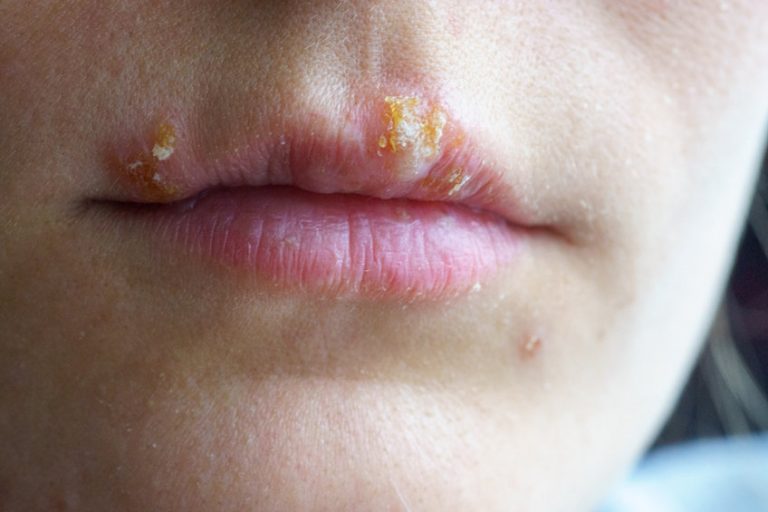
Herpes simplex virus (HSV-1 and HSV-2) causes outbreaks on the skin and mucous membranes. They are often referred to as cold sores. Herpes simplex virus lies dormant after initial infection and can become reactivated by exposure to ultraviolet light, emotional stress, surgery, trauma, or fluctuating hormone levels. The virus reproduces and travels down the nerve to the skin where it produces recurring infections.
While there is no cure for herpes, oral antiviral medications like famciclovir (Famvir), valacyclovir (Valtrex), and acyclovir (Zovirax) may be given to treat recurrent episodes or prevent recurring outbreaks. Some topical products such as antiviral creams, penciclovir (Denavir), and numerous over-the-counter topical remedies can also be used.
The best prevention against herpes simplex virus is to reduce the risk of exposure by having open discussions with potential sexual partners. Condoms should be used, although they are not always effective at preventing the spread of herpes. Someone with an outbreak of herpes simplex virus should avoid sex until all lesions and blisters have crusted over.
